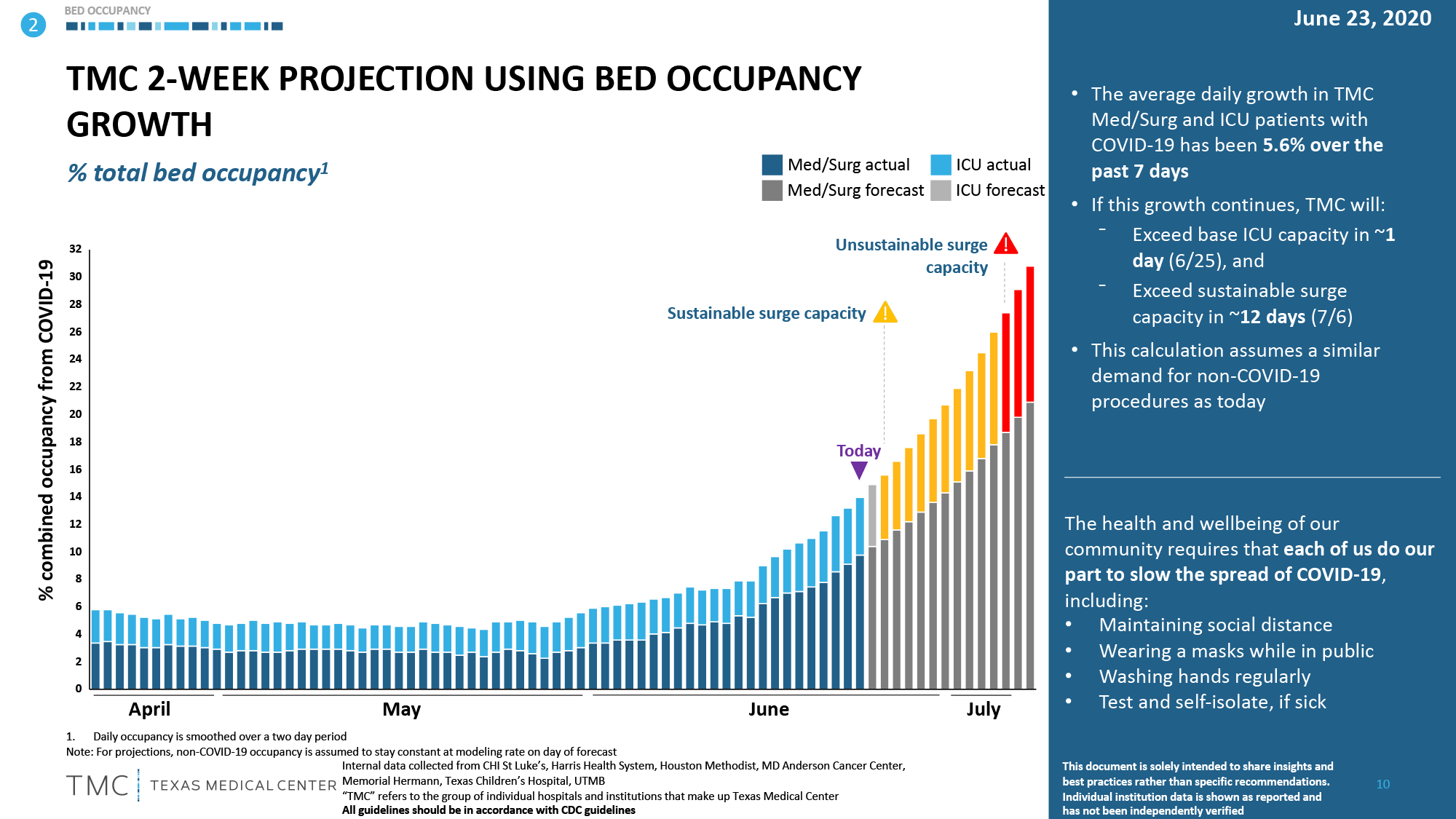HOUSTON – Leaders from the four largest hospital systems in Houston said Thursday that they are in good shape to handle a surge of coronavirus patients if it happens.
The CEOs of Houston Methodist, Memorial Hermann Health System, St. Luke’s Health and Texas Children’s Hospital held a virtual news conference aimed at reassuring the public that the systems are ready to handle whatever may come.
According to data released by the Texas Medical Center, the Houston-area ICUs are currently at 100% capacity with less than a third of those patients having COVID-19.
Still, CEOs from four leading hospitals in the medical center say they’re prepared to handle surge capacity.
“There is not a scenario, in my opinion, to where the demand for our beds, especially ICUs, ventilators, PPE, etcetera, would eclipse our capability,” said Mark Wallace, the President and CEO of Texas Children’s Hospital said.

Dr. Marc Boom, of Houston Methodist, said those numbers don’t fully tell the capacity story.
“Just that number is being misinterpreted and, quite frankly, we’re concerned that there is a level of alarm in the community that is unwarranted right now,” Boom said.
Houston hospital leaders discuss capacityHouston-area hospital leaders are discussing capacity at their facilities amid the coronavirus pandemic.
Posted by KPRC2 / Click2Houston on Thursday, June 25, 2020
All four CEOs agreed they are concerned about the increasing number of coronavirus cases and asked Houstonians to do everything they can to help flatten the current curve. However, the hospitals in the Texas Medical Center are equipped to deal with a surge in COVID-19 hospitalizations.
The CEOs said they have a sustained surge protection plan in place, meaning other beds in other rooms could be used to house patients if it becomes necessary.
“We have plenty of capacity,” said Dr. David Callender, of Memorial Hermann.
Dr. Thomas Giordano, the Chief of Infectious Disease at the Department of Medicine at Baylor College of Medicine, said the next two weeks are critical to determining the severity of the surge.
“I think the next two weeks are really really critical because it’ll tell us if things are going to slow down, plateau or continue to escalate,” said Giordano.
Giordano said the latest round of stats is not to be taken lightly.
“What they are showing is an increase in cases, increase in hospitalizations, increase in intensive care unit stays, and an increase in deaths for the next couple of months,” he said.
As for what can be done to have an impact on the numbers, Giordano said the bottom line: a matter of how residents respond to staying safe.
“Really a lot of it is going to boil down to individual behavior. People need to understand that the shut down didn’t make this go away. And the resumption of activities is not resume everything like it was before. It’s resume with precautions,” he said.